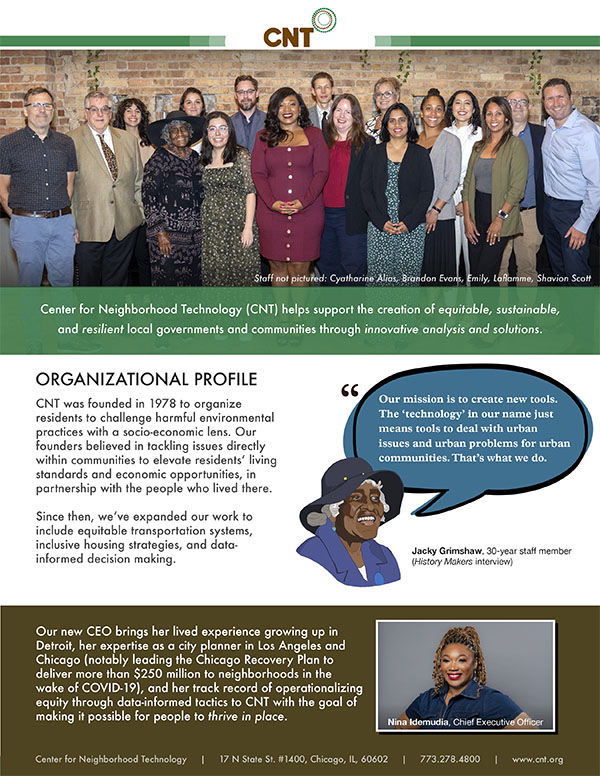Why do our cities and towns flood? Is it too much asphalt, concrete, glass, and steel? Our giant lawns? And what can Illinois communities do to alleviate urban flooding and prevent future losses for their residents?
Some answers may be forthcoming, thanks to the Urban Flooding Awareness Act (SB 2966), sponsored by Sen. Heather Steans (D-Chicago) and Rep. Kelly Cassidy (D-Chicago), and passed by the Illinois General Assembly on May 28.
The Urban Flooding Awareness Act aligns several state and local agencies, stormwater management experts, and other thought leaders to study urban flooding across the entire state. Cooperating agencies will provide a report to the Governor and General Assembly in June of 2015 detailing the costs and prevalence of urban flooding, the effectiveness of green and other infrastructure solutions, floodplain evaluation and strategies to expand flood insurance.
The goal is to analyze existing stormwater management programs and craft policies and strategies to encourage the design and use of the best possible flood prevention practices, with a focus on rapid, low-cost approaches.
One such approach may be the increased use of green infrastructure, which employs plants and other natural systems to mimic the way rainwater is naturally absorbed into the ground, reducing overland flow and flooding. Not only does green infrastructure help prevent urban flooding, it also keeps stormwater runoff, polluted by its tour across our yards and streets, from ending up in rivers, lakes, and other waterways.
Passage of the Urban Flooding Awareness Act is an important step in rethinking how we manage stormwater to reduce urban flooding and protect our homes and businesses from flood damage. This will be crucial in the coming years, as it’s predicted that major rainstorms will become increasingly frequent and severe. By learning more about urban flooding and developing innovative stormwater control measures now, we can make Illinois communities more environmentally and economically resilient.
"With last summer's heavy rainfall, our neighborhoods, cities and state saw a dramatic increase in flooding, causing serious damage to property," said Representative Cassidy. "This bill will bring together stakeholders, experts and State agencies to examine the causes of urban flooding and how our infrastructure and technology can mitigate the impacts in the future."
For any homeowner who has ever suffered a flooded basement, or any business that lost inventory because of a sewer backup, the Urban Flooding Awareness Act is a welcome measure. The study will be the basis for recommendations that provide a roadmap for the State and Illinois communities to take appropriate action to reduce urban flooding and help residents and businesses cope with its devastating costs, including property damage, injury and illness, and time devoted to clean-up.
CNT’s award-winning study on urban flooding in Cook County found that urban flooding causes hundreds of millions of dollars each year in property damage in Cook County alone, with an average per-claim payout of $4,272. This type of information gathering is very important and replicable. By collecting data on the nature and scale of the problem and establishing a statewide plan of action, other states can provide their communities with a support framework for outreach, technical and financial assistance, and incentives to reduce the impacts of urban flooding.





 Strengthening Transit Through Community Partnerships
Strengthening Transit Through Community Partnerships



 RSS Feed
RSS Feed